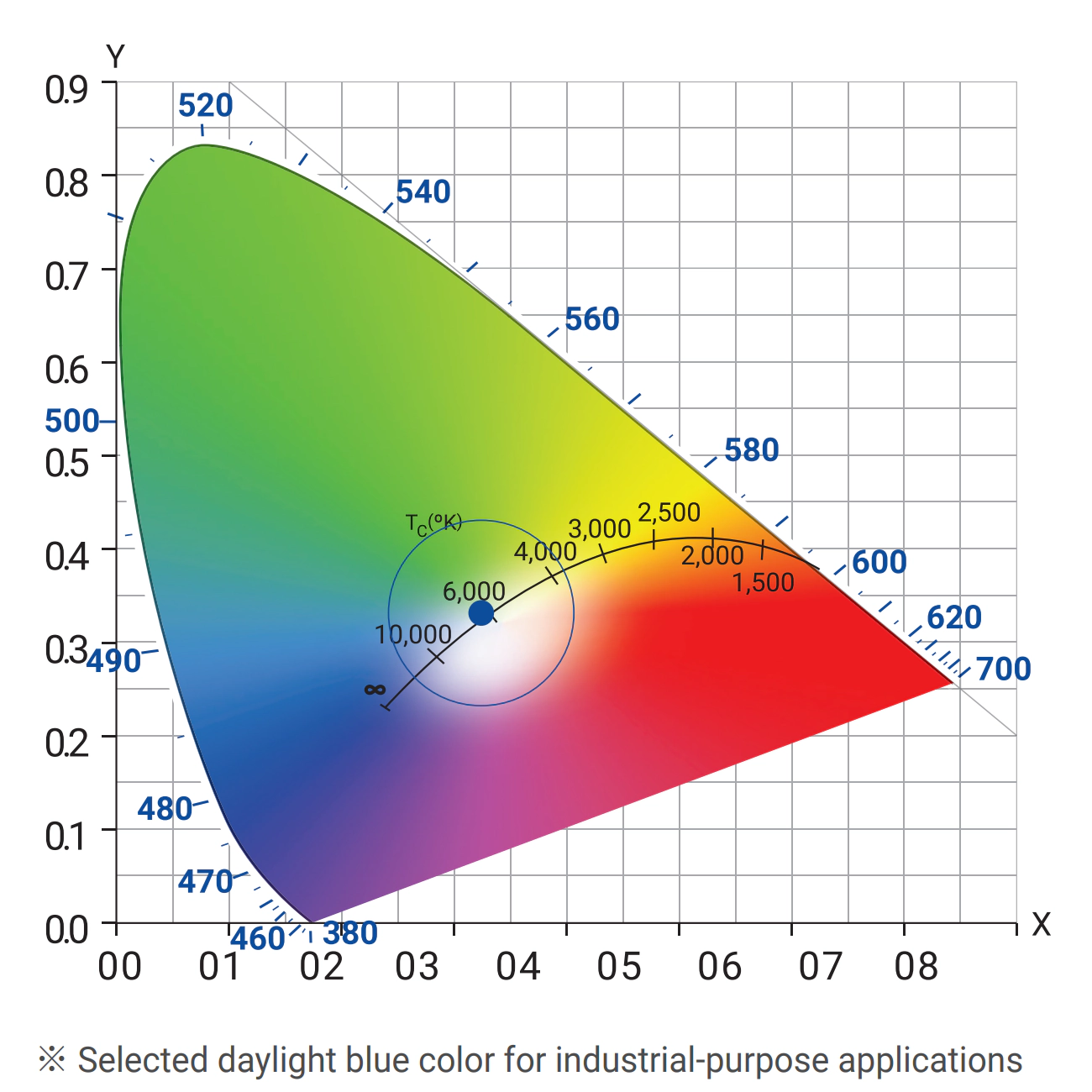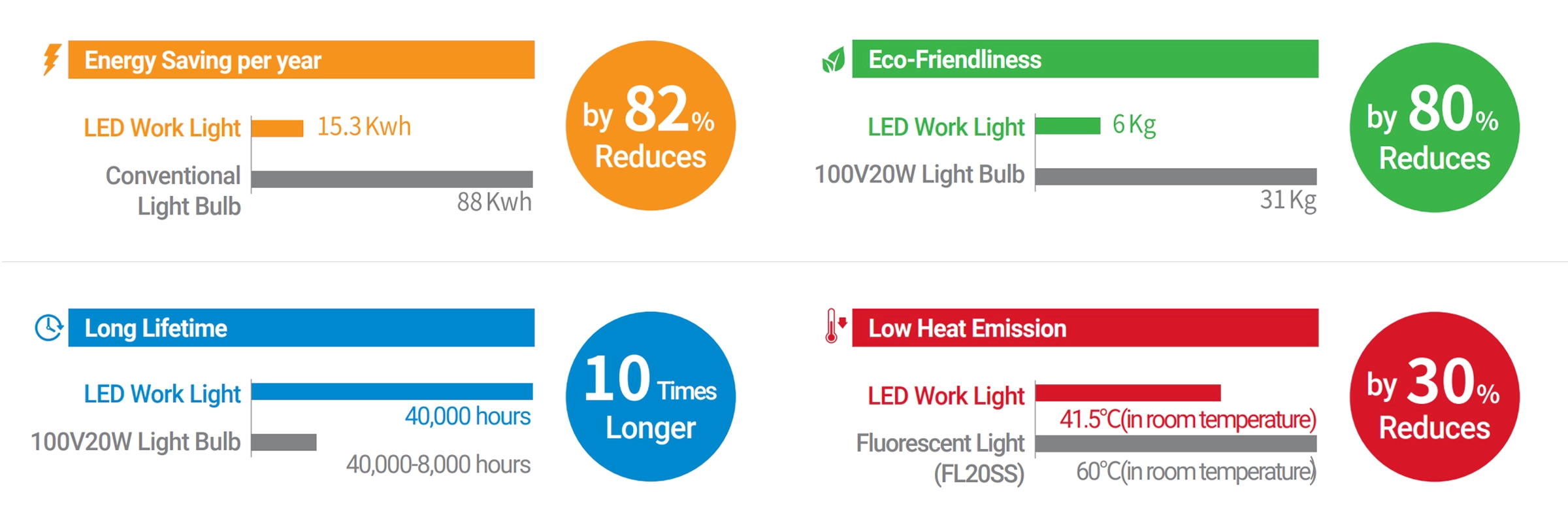Color Space Chart / Color Temperature
CIE 1931 Color Space Chart

LED Colors are represented by the CIE 1931 RGB color space and CIE 1931 XYZ color space created by the International Commission on Illustration (CIE in 1931).
Color Space Chart is based on the brightness of the color. Green occupies the largest space since it has the largest effect on determining the brightness of colors, while blue color that shows the least effect occupies the smallest area.
The mixing ratio of the brightness of the color is 3: 6: 1 (R: G: B), where the green portion occupies the largest space. White color that is commonly used for work lights is composed of the color green, red, and blue.
White color also varies due to the ratio of these three colors. The variationcolor ratios is referred as the color temperature
Color Temperature

The color temperature of a light source is the temperature of an ideal black-housing radiator that radiates light of comparable hue to that light source.
The Temperature is conventionally stated in units of absolute temperature, known as Kelvin(K).
The black housing radiates red spectrum when it starts to heat up, and will radiate blue light when the temperature gets even higher.

- Before Sunset: 2,200K(Candlelight, incandescent lamp)
- 40minutes after sunset: 3,000K(Warm white fluorescent lamp, high pressure natrium lamp)
- 2 hours after sunset: 4,000K(White halogen fluorescent lamp)
- Sunlight at noon: 5,800K(Daylight fluorescent lamp)
- Cloudy day: 7,000K(Daylight blue, fluorescent mercury lamp)
| No. | Color | Wavelength(mm) |
| 1 | Red | 618-635 |
| 2 | Amber | 585-595 |
| 3 | Green | 510-530 |
| 4 | Blue | 453-465 |
| No. | Color | Color Temperature(K) |
| 1 | incandescent | 2,500-3,500 |
| 2 | warmwhite | 3,500-4,500 |
| 3 | daylight | 4,500-5,500 |
| 4 | cooldaylight | 5,500-7,000 |
Connect with Us!
Qlight is ready to provide supreme services.
We will give you a prompt response once you leave a message on the contact form.
